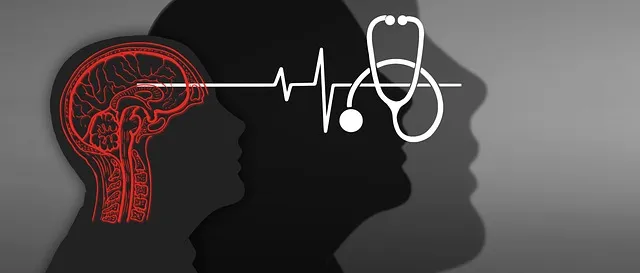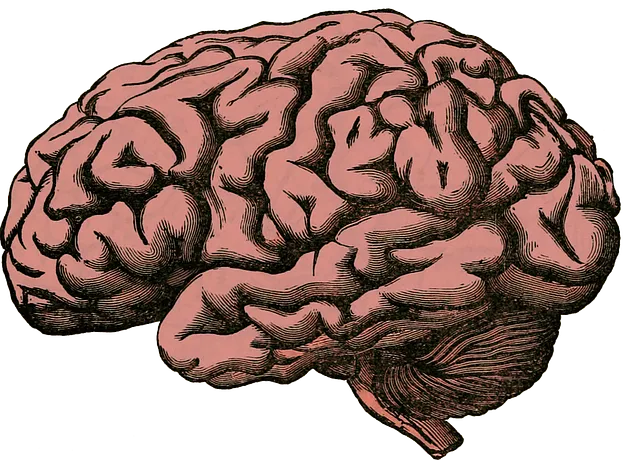Louisville Kaiser Permanente is pioneering comprehensive mental health support through specialized Crisis Intervention Teams (CITs) trained in advanced crisis management, de-escalation techniques, and evidence-based practices. Their holistic approach includes training programs focusing on communication, stress management, and caregiver empowerment, ensuring staff are equipped to handle acute situations with empathy and expertise. This investment leads to improved decision-making, enhanced patient safety, and better long-term outcomes in mental health care.
In today’s healthcare landscape, crisis intervention teams (CITs) are a vital resource for managing psychiatric emergencies. Effective CIT training programs equip caregivers with essential skills to de-escalate situations and provide quality care. This article explores the critical role of CITs in modern healthcare, using Louisville Kaiser Permanente as a leading example for mental health support. We’ll delve into key components of successful training, real-world application strategies, and measurement of program impact, highlighting best practices from industry leaders like Louisville Kaiser Permanente in addressing mental health crises.
- Understanding Crisis Intervention Teams: A Necessity in Modern Healthcare
- Louisville Kaiser Permanente: A Leading Example for Mental Health Support
- Components of Effective Crisis Intervention Team Training Programs
- Preparing Caregivers: Skills and Strategies for Real-World Scenarios
- Implementation and Impact: Measuring Success in Crisis Response Training
Understanding Crisis Intervention Teams: A Necessity in Modern Healthcare

In today’s fast-paced and often stressful world, mental health crises are a common challenge faced by individuals across various settings, including healthcare facilities like Louisville Kaiser Permanente. To address this growing need, Crisis Intervention Teams (CITs) have emerged as a crucial component of modern healthcare. CITs are specialized groups of professionals who receive extensive training to recognize, assess, and manage acute mental health crises effectively.
These teams play a pivotal role in preventing escalation and promoting positive outcomes for patients experiencing conditions such as depression, psychosis, or severe emotional distress. Through Louisville Kaiser Permanente’s crisis intervention team training programs, healthcare providers gain essential skills in conflict resolution techniques, mood management strategies, and evidence-based practices tailored to mental health crises. Such initiatives ensure that the organization’s staff is equipped to handle complex situations with compassion and competence, ultimately enhancing patient safety and care.
Louisville Kaiser Permanente: A Leading Example for Mental Health Support

Louisville Kaiser Permanente stands as a beacon of hope and best practice in mental health support within healthcare systems. Their crisis intervention team training programs have been hailed as innovative, integrating evidence-based practices with a holistic approach to care. By emphasizing not just emergency response but also prevention and recovery, their initiatives extend far beyond traditional medical models.
Through comprehensive training that includes Mental Wellness Journaling Exercises and guidance on Self-Care Routine Development for Better Mental Health, Kaiser Permanente Louisville empowers its teams to offer more personalized and effective support. Furthermore, their dedication extends into the community through Mental Health Policy Analysis and Advocacy, ensuring that resources and understanding of mental health are accessible and prioritized at all levels.
Components of Effective Crisis Intervention Team Training Programs

Effective crisis intervention team (CIT) training programs are meticulously designed to equip healthcare professionals with essential tools and skills for managing critical situations. These programs, often tailored for organizations like Louisville Kaiser Permanente’s mental health division, typically encompass a multi-faceted approach. Firstly, they focus on Communication Strategies, teaching participants active listening, empathy, and de-escalation techniques to facilitate safe and supportive interactions with individuals in distress.
Moreover, such training programs emphasize Stress Management Workshops Organization as a vital component to prevent burnout among healthcare providers. By incorporating stress reduction techniques, mindfulness exercises, and resilience-building activities, these initiatives aim to enhance professionals’ ability to remain calm under pressure and provide consistent care. Effective CIT training also delves into identifying warning signs of crises, developing intervention plans, and fostering a collaborative environment where team members can support each other in managing high-pressure scenarios.
Preparing Caregivers: Skills and Strategies for Real-World Scenarios

Preparing caregivers for crisis intervention is a critical aspect of ensuring effective support for individuals facing mental health challenges. Programs like those offered by Louisville Kaiser Permanente focus on equipping caregivers with essential skills and strategies tailored to real-world scenarios. This training goes beyond theoretical knowledge, delving into practical exercises that simulate crisis situations, allowing caregivers to develop emotional intelligence and learn guidance techniques for mental wellness journaling exercise.
Through these programs, caregivers gain a deeper understanding of the emotional healing processes involved in managing crises. They learn to recognize signs of distress, provide compassionate support, and navigate challenging behaviors with confidence. By integrating strategies from Louisville Kaiser Permanente’s expertise in mental health, caregivers become better equipped to offer immediate assistance while fostering long-term emotional well-being for those they care for.
Implementation and Impact: Measuring Success in Crisis Response Training

The true measure of a crisis intervention team’s effectiveness lies in its ability to translate training into tangible outcomes. When Louisville Kaiser Permanente implemented their mental health crisis response program, they aimed to foster a culture of compassionate and competent care. By integrating Risk Management Planning for Mental Health Professionals, Empathy Building Strategies, and Emotional Regulation techniques into the curriculum, the organization sought to empower staff to handle crises with resilience and sensitivity.
Through regular simulations and debriefings, team members honed their decision-making skills, learned to recognize subtle cues of distress, and developed strategies to de-escalate high-pressure situations. The impact was evident; healthcare professionals reported increased confidence in managing mental health crises, leading to improved patient outcomes and a safer environment for both patients and staff. This successful implementation demonstrates that investing in comprehensive crisis intervention training is key to enhancing the quality of care provided by Louisville Kaiser Permanente’s dedicated mental health professionals.
Crisis intervention team (CIT) training programs are essential components of modern healthcare, as highlighted by Louisville Kaiser Permanente’s innovative approach to mental health support. By equipping caregivers with effective skills and strategies, these programs prepare them to handle real-world crisis scenarios. As the implementation and impact of CIT training gain recognition, we see a potential game-changer in enhancing crisis response across various healthcare settings, mirroring the success seen at Louisville Kaiser Permanente.





